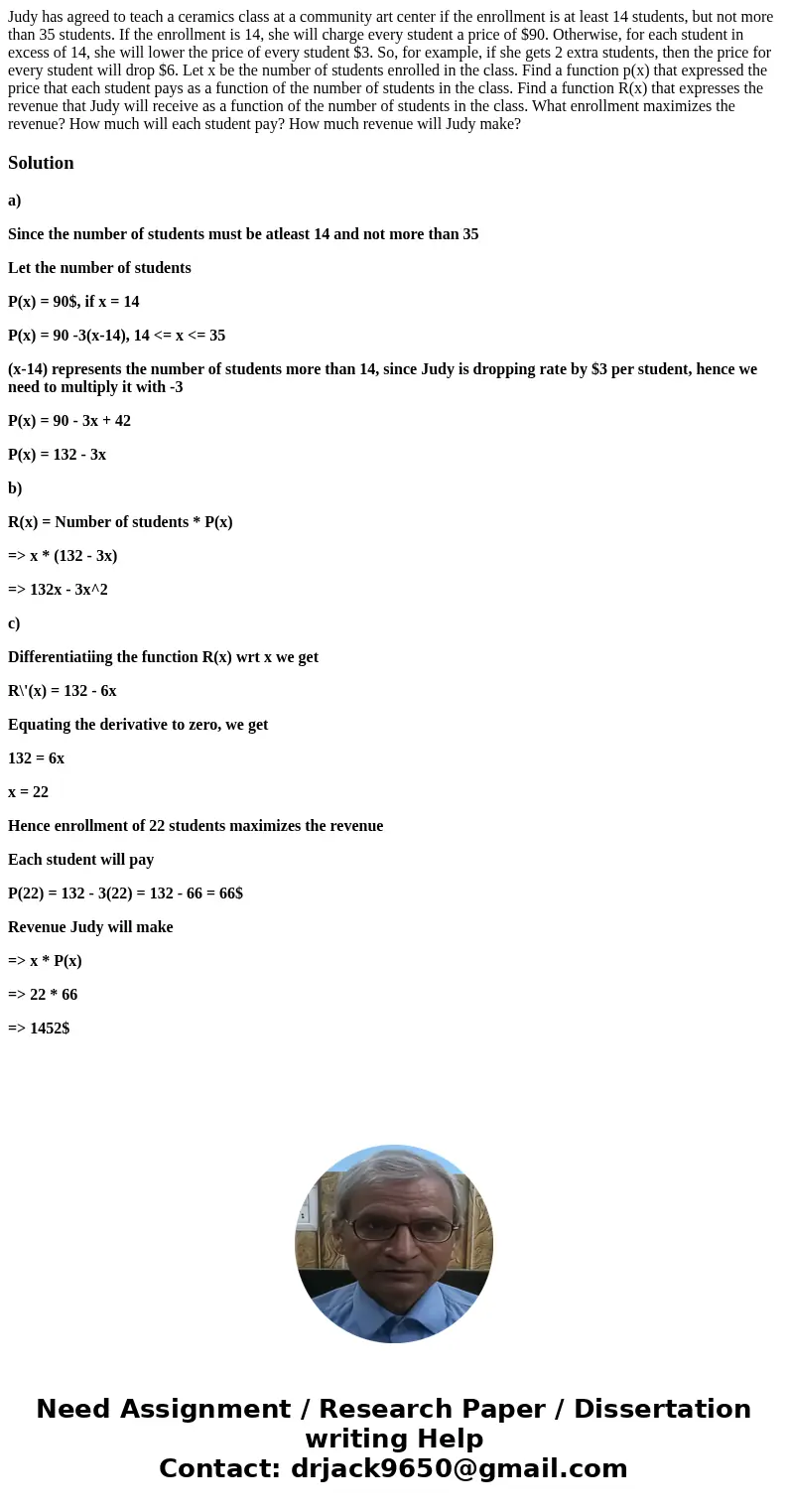Judy has agreed to teach a ceramics class at a community art
Judy has agreed to teach a ceramics class at a community art center if the enrollment is at least 14 students, but not more than 35 students. If the enrollment is 14, she will charge every student a price of $90. Otherwise, for each student in excess of 14, she will lower the price of every student $3. So, for example, if she gets 2 extra students, then the price for every student will drop $6. Let x be the number of students enrolled in the class. Find a function p(x) that expressed the price that each student pays as a function of the number of students in the class. Find a function R(x) that expresses the revenue that Judy will receive as a function of the number of students in the class. What enrollment maximizes the revenue? How much will each student pay? How much revenue will Judy make?
Solution
a)
Since the number of students must be atleast 14 and not more than 35
Let the number of students
P(x) = 90$, if x = 14
P(x) = 90 -3(x-14), 14 <= x <= 35
(x-14) represents the number of students more than 14, since Judy is dropping rate by $3 per student, hence we need to multiply it with -3
P(x) = 90 - 3x + 42
P(x) = 132 - 3x
b)
R(x) = Number of students * P(x)
=> x * (132 - 3x)
=> 132x - 3x^2
c)
Differentiatiing the function R(x) wrt x we get
R\'(x) = 132 - 6x
Equating the derivative to zero, we get
132 = 6x
x = 22
Hence enrollment of 22 students maximizes the revenue
Each student will pay
P(22) = 132 - 3(22) = 132 - 66 = 66$
Revenue Judy will make
=> x * P(x)
=> 22 * 66
=> 1452$

 Homework Sourse
Homework Sourse